We are Indigenous scholars, health researchers, practitioners, policy makers and community builders united with a shared purpose: to improve the health of Indigenous northerners.
As individuals, this has been a lifelong principle in practice across our work. As a group, we generate strong intention and a sense of possibility that inspires action. Our collaborative approach to community-led research will bring about sustainable change and improve health outcomes for Indigenous communities now and for years to come.
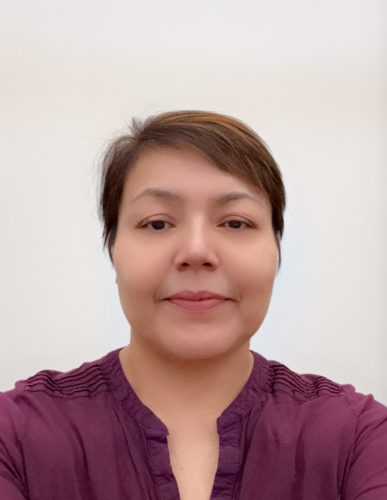
Anita Daniels-Black
Director of NT NEIHR

Anita Daniels-Black
Director of NT NEIHR
Anita Daniels-Black was born in Behchokǫ̀, NT. In 1999, she began a 15-year career at the Tłı̨ chǫ
Community Services Agency where she served in a variety of positions from Board Coordinator to the Manager of Wellness and Social Programs. She was one of the early members of the CART
(Community Action Research Team), a peer-to-peer action research strategy for educating and
involving young people to improve their health and wellness often related to sexual health, addictions, family violence and most recently, diet and nutrition issues. In 2012, Anita transferred to the Tłı̨chǫ Government as the Director of Social Programs and recently as the Senior Research Advisor. In her role with the NT NEIHR, Anita will provide expertise in community-based research methods, youth engagement, and knowledge translation.
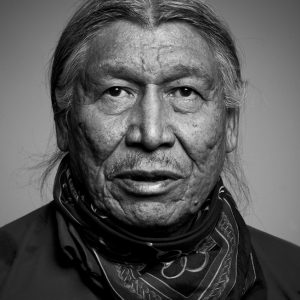
François Paulette
Governing Council, NT-NEIHR
Principal Applicant

François Paulette
Governing Council, NT-NEIHR
Principal Applicant
A member of the Tthebatthie Denesųłiné Nation on Treaty 8 territory, Francois Paulette survived the residential school system before going on to become the youngest Chief in the Northwest Territories Indian Brotherhood in 1971. In 1972, along with sixteen other chiefs from the Mackenzie Valley, he challenged the Crown to recognize treaty rights and Aboriginal title to over 450,000 square miles of land in the historic Paulette case. He remains a passionate and outspoken advocate of treaty and Indigenous rights in all matters affecting his people, and is recognized in the courts as an expert witness on historic treaties.
As Chief Negotiator for the Tthebatthie Denesųłiné Nation, Francois worked diligently to conclude a Treaty Land Entitlement Agreement, which has proven to be of critical importance in protecting the Slave River from hydro-electric development.
Francois takes pride in maintaining his Dene language and the traditional knowledge that derives from his close relationship with the land. He was one of the founding members of the Dene Cultural Institute, and continues to serve as an interpreter of traditional knowledge and a facilitator of cross-cultural understanding. As a collaborator on a number of Canadian and international documentary films, he has helped to increase public understanding of the Dene way of life (Dene Ch’anie), and has participated in ecumenical forums, including the Parliament of the World’s Religions, to promote an understanding of the spiritual world of the Dene.
Francois remains active in efforts to protect the natural environment of Denendeh. He has contributed to numerous water conferences in the north and has been a collaborator on several documentary films focusing on the impact of the tar sands development on the environment and people of northern Canada. Over a period of nine years, he participated in annual meetings of the United Nations Conference of Parties (COP) on Climate Change, in various locations around the globe and contributed to the Indigenous Peoples’ Traditional Knowledge articles of the Paris Agreement. As a past member of the Assembly of First Nations Elders Council, Francois was instrumental in the development of traditional knowledge protocols and policy for the Canadian Ministry of Climate Change and the Environment.
Francois has extensive experience as a guest lecturer at institutions such as Aurora College, Dechinta Centre for Research and Learning, and the Munk School of Global Affairs, University of Toronto. He is currently an Adjunct Professor at the University of Alberta’s School of Public Health and an Elder Advisor at the Institute for Circumpolar Health Research (ICHR), where he teaches and mentors students and researchers. As the Chair of the Governing Council for the Northwest Territories NEIHR, a multi-million dollar grant to strengthen Indigenous health research capacity in the Northwest Territories, Francois plays a critical role creating programs and environments for Indigenous leadership in health research.
Francois is an Officer of the Order of Canada and has an honorary doctorate of law from Kwantlen Polytechnic University. Ultimately, however, his well-being and strength continue to derive from his relationships with family and the ancestral lands of the Denesųłiné.
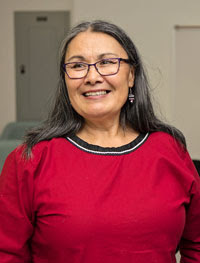
Rassi Nashalik
Governing Council, NT-NEIHR
Principal Applicant

Rassi Nashalik
Governing Council, NT-NEIHR
Principal Applicant
Rassi Nashalik is an Inuk Elder committed to the promotion and preservation of Inuit Qaujimajatuqanfit (traditional knowledge). She was a highly respected media personality who had a long association with CBC North, travelling extensively across the North, speaking with northern peoples and understanding their concerns. She has produced award-winning programs celebrating northern achievements, as well as highlighting problems such as youth suicide. Early in her career, she served on the frontline of health care as a community health representative in Pangnirtung, Nunavut.
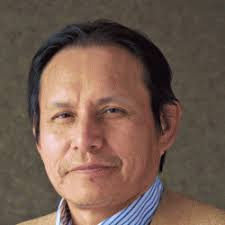
John B. Zoe
Governing Council, NT-NEIHR Principal Knowledge User

John B. Zoe
Governing Council, NT-NEIHR Principal Knowledge User
For more than two decades, John has worked to preserve, revive and celebrate the culture and language of the Tłįchǫ people, particularly through land-based programs. He is experienced in the area of land claims and self-government negotiation and implementation work in community service and with government agencies in the Tłįchǫ region.
John is committed to advancing education opportunities in the north and supporting research that is grounded in Tłįchǫ cosmology. In his role with the Tłįchǫ Research and Training Institute and senior advisor to the Tłįchǫ Ndek’àowo (Tłįchǫ government), he advises and collaborates at the Institute for Circumpolar Health Research. His work includes participating in research projects as a co-investigator and traditional knowledge holder; co-supervising graduate students applying traditional knowledge methods in their research; and, lecturing as invited.

Denise McDonald
Co-Applicant

Denise McDonald
Co-Applicant
Denise McDonald, BEd, MEd held leadership roles in education, health and research in the Northwest Territories. This included roles as Superintendent of Education for the Beaufort Delta Education Council, Regional Wellness Director for the Gwich’in Tribal Council, and Director of Research Development for the Institute of Circumpolar Health Research. As an adjunct professor at the University of Alberta, Denise supports connections to community-based research in Inuvik and provides mentorship and support to students. Her focus is on applying traditional knowledge, community-based research, and knowledge translation through Indigenous governments and northern communities.
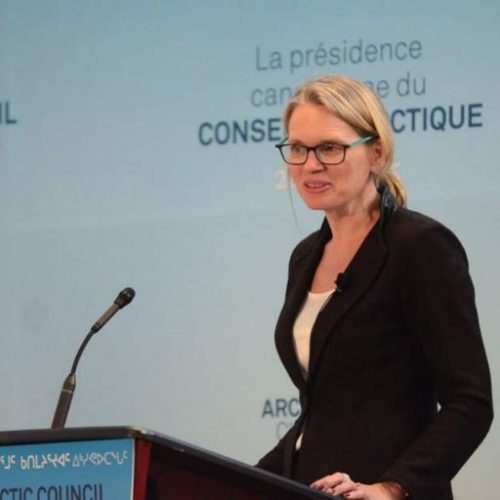
Susan Chatwood
Scientific Director, ICHR
Co-Applicant

Susan Chatwood
Scientific Director, ICHR
Co-Applicant
Susan Chatwood, BScN, MSc, PhD has devoted much of her professional life working in Indigenous communities in the NT and Nunavik as a nurse, researcher, and consultant. She was founding Director of ICHR in 2005. She was awarded the Fulbright Arctic Initiative Scholar in 2015. In 2009 she was appointed assistant professor of public health at the University of Toronto, the first northern-based faculty appointment. In 2017 she was recruited to the University of Alberta’s School of Public Health as associate professor, where she was also named McCalla Professor tasked with developing northern-based curriculum in the School. Her major research focus is on health systems research frameworks that address inequities and include related systems that drive determinants of health in the Arctic, including climate change, Indigenous values, and geographical challenges. IN 2019, Susan was appointed to the National Sciences and Engineering Research Council (NSERC) as a council member.
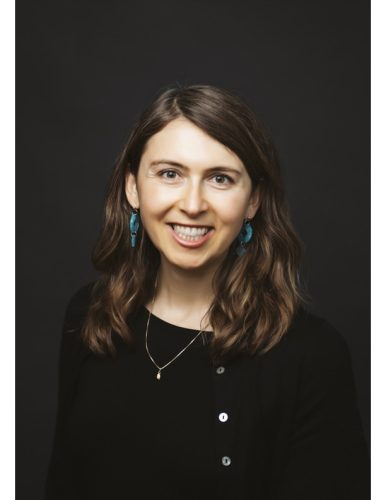
Sophie Roher
Research Scientist, ICHR
Co-Applicant

Sophie Roher
Research Scientist, ICHR
Co-Applicant
Dr. Sophie Roher (she/her) is a health policy researcher and CIHR SPOR-funded Research Scientist at the Institute for Circumpolar Health Research.
Sophie believes in the power of relationships and storytelling. Her research uses participatory and narrative methods to foster dialogue and co-learning between communities and health system stakeholders, with the goal of addressing inequities in care and supporting patient-centred health policies and programs.
She completed her MSc in Health Policy and Bioethics and her PhD in Social and Behavioural Health Sciences at the Dalla Lana School of Public Health, University of Toronto. Sophie is an Adjunct Professor at the University of Alberta’s School of Public Health and an Assistant Professor (status-only) at the Dalla Lana School of Public Health. She also serves as a Board Member with the Canadian Society for Circumpolar Health and as a Research Fellow with the International Arctic Science Committee’s Social and Human Working Group.
Her research interests include: cultural safety in health services, collaborative research partnerships, capacity-building initiatives, northern health policy, health equity, food security, maternal health, and creative strategies for knowledge mobilization.
